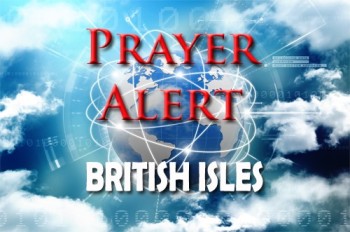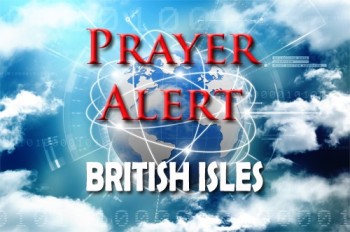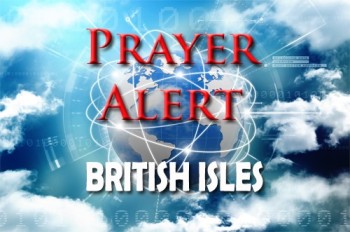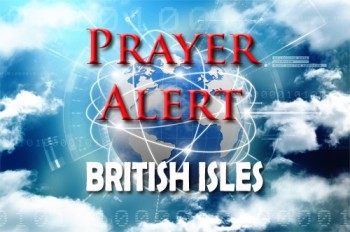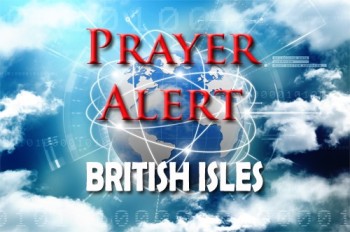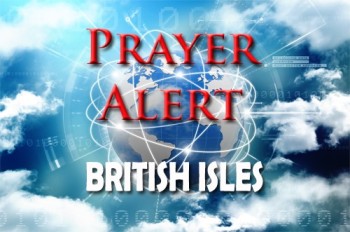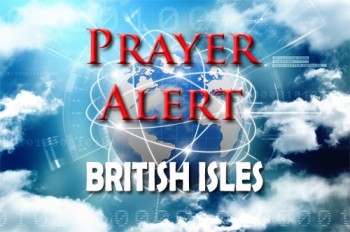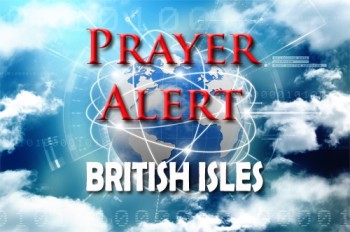Displaying items by tag: Northern Ireland
Northern Ireland: third night of violence in Ballymena
Ballymena, County Antrim, has experienced three consecutive nights of violent unrest following a protest over an alleged sexual assault. Initially peaceful, the protest escalated into serious disorder after two teenage boys appeared in court, denying the charges via a Romanian interpreter. Demonstrations turned hostile as crowds in the Clonavon Terrace area threw petrol bombs, fireworks, bricks, and bottles at police officers. The police deployed riot control measures including baton rounds and a water cannon. Seventeen more officers were injured overnight, bringing the total to 32, and five arrests were made. Several cars were set ablaze, and windows of local homes were smashed. Police have described the violence as 'racist thuggery’, suggesting that ethnic tensions had contributed to the escalation. Authorities are calling for calm amid concerns about further disturbances and are urging communities to reject hatred and violence. Update: on the third night a leisure centre in Larne was set on fire.
Incredible reports of revival sweeping across UK
A fresh move of God is sweeping across the UK, with increasing reports of prayer gatherings, healings, and spiritual renewal. Pastor Craig Cooney of Hope Church, Northern Ireland, describes it as 'a rising river', signaling the end of the spiritual drought caused by the pandemic. He notes that weekly prayer meetings are growing, with believers interceding passionately for the lost. Testimonies of divine healings are becoming more frequent, even among those previously skeptical. In England, Rev Liz Doyle recently prayed with British leaders inside Windsor Castle, sensing God’s promise to bring revival to St George’s Chapel. Scotland, too, is experiencing breakthrough: Franklin Graham’s Glasgow event saw over 7,000 people attend, with many surrendering to Christ. This revival mirrors Elijah’s servant seeing a cloud the size of a man’s hand - a sign of greater things to come. God is calling His people to prayer, consecration, and deeper commitment. See
Minister's warning over impact of digital travel permit
Northern Ireland’s economy minister, Conor Murphy, has warned that the UK’s new Electronic Travel Authorisation (ETA) scheme could severely impact tourism. Starting this week, visitors from 48 additional countries must apply for an ETA, costing £10 per person, before entering the UK. The digital permit, linked to passports, is valid for two years and allows multiple stays of up to six months. Murphy is lobbying Westminster to exempt Northern Ireland from the scheme, emphasising that 70% of international tourists arrive via the Republic of Ireland and could be discouraged by this added cost and process. He suggested a seven-day exemption for short-term visitors, highlighting tourism’s significant contribution to the Northern Ireland economy in 2023 and its importance as a peace process success story. Tour operators and tourism bodies voiced concerns that the added expense could deter visitors from visiting iconic destinations like the Giant’s Causeway. The Government, defending the ETA as a streamlined, secure system, has pledged to work with the tourism industry to address concerns.
British businesses stop shipping to Northern Ireland
Small British businesses are halting shipments to Northern Ireland and the EU due to new EU customs rules and product safety regulations. These regulations require complex compliance steps, including detailed paperwork, batch numbering, and the designation of an EU or Northern Ireland-based 'authorised representative’. Many small firms, lacking resources to navigate these requirements, have chosen to cease trade rather than risk penalties. Entrepreneurs are expressing frustration over the lack of timely government communication and support. Business owners learned about the changes through social media rather than official channels, exacerbating the challenge during the busy Christmas season. While the Government claims to prioritise small businesses, the lack of tailored guidance leaves many struggling. Small businesses fear these changes favour larger corporations, potentially widening economic disparities.
DUP leader calls for police crackdown following attack on Belfast church
An article from the Belfast Telegraph reports on a disturbing racially motivated attack on an East Belfast church. Vandals used an angle grinder to damage the church's gates, an act that has been widely condemned by the community and political leaders as a hateful and sickening attack. The church, known for its diverse congregation and outreach programmes, has been a vital part of the community, fostering inclusivity and unity among people of different backgrounds. Local authorities have launched an investigation, treating the attack as a hate crime. Community members and leaders have expressed their solidarity with the church, emphasising the need to stand against racism and support those targeted by such violence. The church leadership remains undeterred, focusing on promoting peace and reconciliation in the wake of this attack. They have called for prayers and unity within the community, reaffirming their commitment to serving everyone regardless of race or background.
Türkiye: largest prisoner swap since 1985
Journalist Evan Gershkovich and US marine Paul Whelan have been released from Russian jails in the largest prisoner swap with the West since the Cold War. The exchange, the result of months of complex negotiations, also freed British-Russian dissident Vladimir Kara-Murza, who had been sentenced to 25 years for opposing Russia’s invasion of Ukraine. Others released include Radio Free Europe editor Alsu Kurmasheva, anti-war artist Aleksandra Skochilenko, dissident politician Ilya Yashin, two former staffers for Alexei Navalny, and Russian-German dual citizen Kevin Lik. The swap, conducted in Turkey, involved the US, Russia, Germany, and other nations, led by Joe Biden and his national security team. Biden, speaking from the White House with the families of the released, called it ‘a very good afternoon’ and praised the diplomacy involved. He acknowledged Germany, Poland, Slovenia, Norway, and Turkey for their roles in the negotiation and logistical support.
'No threat to NI power-sharing' after Jeffrey Donaldson's resignation
Northern Ireland's first minister Michelle O’Neill is confident there is no threat to the region’s power-sharing structure following the resignation of Democratic Unionist Party (DUP) leader Sir Jeffrey Donaldson. Donaldson, who has been an MP since 1997, stepped down amid charges over alleged historical sexual offences, which he intends to 'strenuously contest’. This unexpected upheaval follows the power-sharing deal earlier this year, which was crucially dependent on Donaldson’s support. In response to the situation, O’Neill has proactively reached out to other party leaders (including Gavin Robinson, the interim DUP leader) and members of the ministerial executive, to ensure stability. Her priority is to keep the power-sharing government effective, focusing on day-to-day matters of public concern.Donaldson, who has led the DUP since 2021, is scheduled to appear in court on 24 April. Despite his suspension from the party, he reportedly retains his MP position.
Northern Ireland: Sunak to examine proposals for greater defence role
Rishi Sunak has expressed willingness to review a report suggesting Northern Ireland should enhance its role in the UK's national security. He did so during Prime Minister’s Questions, where DUP leader Sir Jeffrey Donaldson praised Sunak for reviving Stormont's political institutions, strengthening the union, and revitalising Northern Ireland's economy and political landscape. He urged Sunak to consider the Policy Exchange report, which recommends increasing Northern Ireland's contribution to national defence. The report highlights Northern Ireland's strategic importance, advocating for expanded naval and air operations against Russian threats and urging collaboration with regional partners for collective security. Sunak commended Sir Jeffrey's leadership and acknowledged the enhanced union due to the return of devolution.
Northern Ireland: DUP deal aimed at restoring power-sharing
A new deal between the UK government and the Democratic Unionist Party (DUP) aims to restore power-sharing in Northern Ireland by reducing checks on goods moving from the UK to Northern Ireland. The deal, which could quickly lead to the return of devolution, is seen as a pivotal step in resolving tensions which arose from post-Brexit trade rules. NI secretary Chris Heaton-Harris praised the agreement, and DUP leader Sir Jeffrey Donaldson claimed it effectively removes the Irish Sea border for goods. The deal, endorsed by the DUP's executive, will be accompanied by legislation to reinforce NI's economic ties with the UK, and is expected to swiftly pass through Parliament. This development, a significant milestone in restoring local governance, addresses long-standing political and trade concerns in the region.
Sunak offers to sacrifice Brexit freedoms to resolve Stormont impasse
Rishi Sunak has proposed compromising some of Britain's Brexit freedoms to encourage the return of devolved government in Northern Ireland. He plans to introduce a requirement that all new laws undergo screening to ensure they won't create additional trade barriers in the Irish Sea, aiming to persuade the Democratic Unionist Party (DUP) to end its two-year boycott of Stormont, which has paralysed Northern Irish politics. All laws would have to come with a ministerial statement confirming they would not significantly harm internal UK trade. If Britain diverges from EU rules, these checks could increase, potentially blocking new laws that differ from Brussels. Unionists argue that the current arrangement harms the Northern Irish economy. While Sunak's offer aims to guarantee no new laws will create more trade barriers between Great Britain and Northern Ireland, critics argue it would tether the UK to European standards and limit the benefits of Brexit. The DUP leader, Sir Jeffrey Donaldson, has been in talks with the government over returning to power-sharing in Stormont but has faced resistance within his party.
